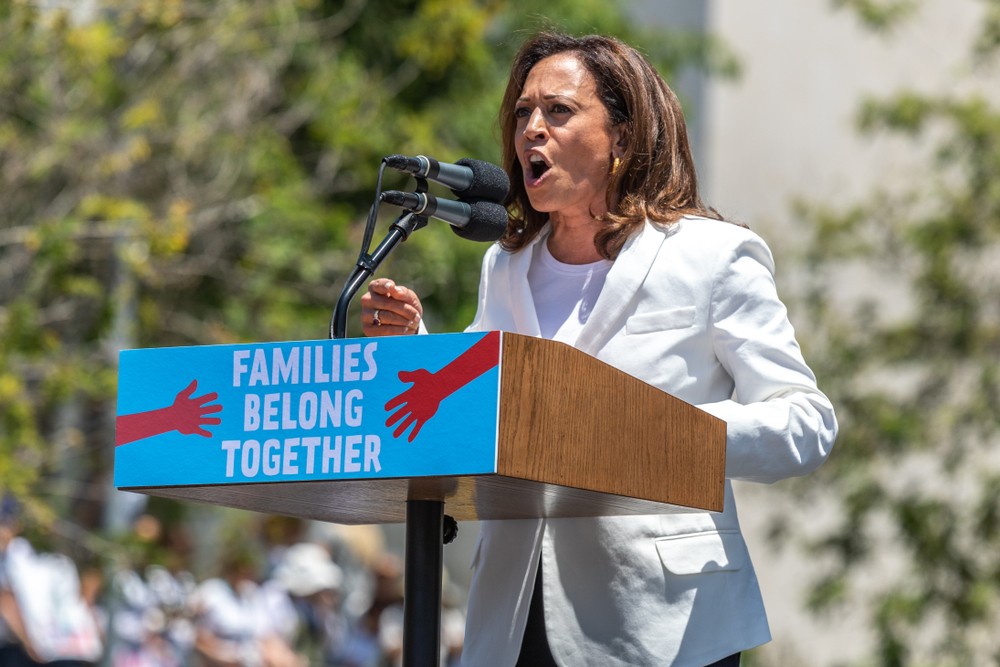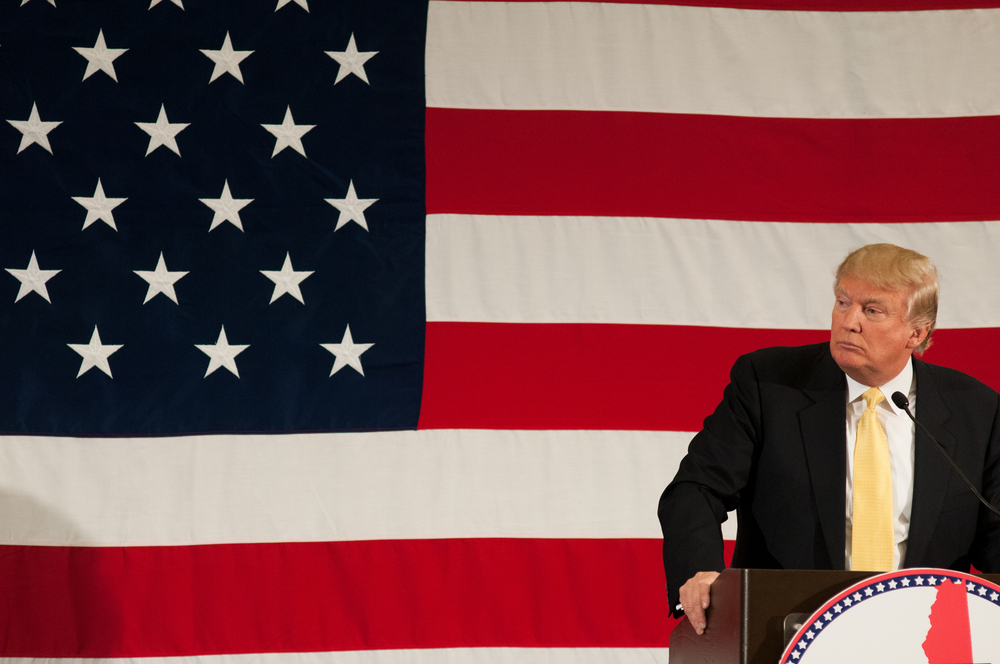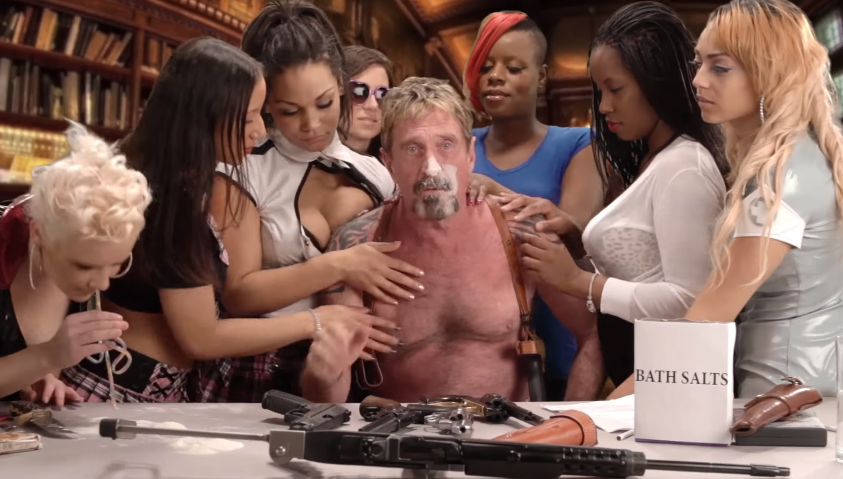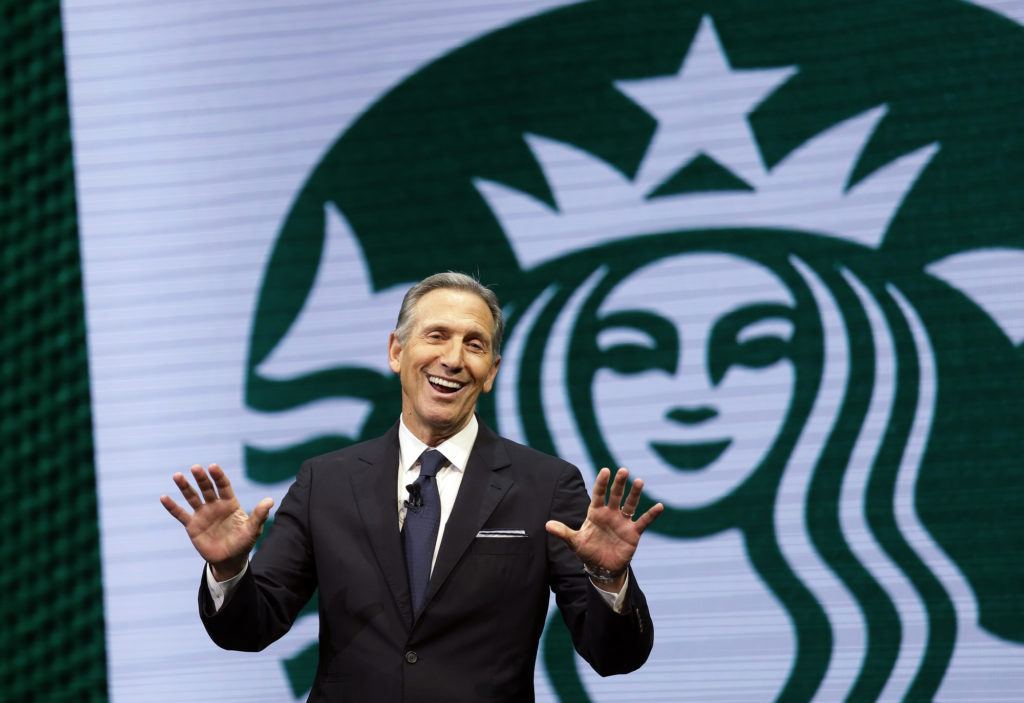Here’s What Every Major 2020 US Presidential Candidate Has Said about Bitcoin

What have all the 2020 US presidential candidates said about bitcoin? Read this guide to find out. | Source: AFP
The 2020 US presidential election is still nearly two years away, but campaign season is already in full swing. Before long, voters will know which Democrats support the Green New Deal and what mantra will replace Trump rally staple “Lock her up!” (assuming Hillary Clinton doesn’t run again, that is). Less prominent, though, are the candidates’ thoughts on bitcoin, positions which do not always sort out along party lines.
Will the 2020 US presidential election bring us the first crypto-investor-in-chief, or will the voters elect someone with no qualms about using the long arm of the executive branch to impose burdensome regulations on the nascent asset class? Read below to find out.
Note: While this list is not exhaustive — more than two dozen Democrats have either formally begun their campaigns or are considering running — it includes every major candidate, as well as others who have taken notable stances on bitcoin or blockchain technology. We will regularly update this list as candidates enter the race and/or update their opinions on cryptocurrency.
Democratic Candidates
Cory Booker

- Claim to Fame: Sitting Senator (New Jersey)
- Campaign Status: Running
- Crypto Stance: ???
Cory Booker sits on the Senate Commerce Subcommittee on Communications Technology, Innovation, and the Internet, but the junior senator from New Jersey has not revealed his thoughts on at least one innovative internet-native communications technology: bitcoin.
Tulsi Gabbard

- Claim to Fame: Sitting Representative (Hawaii)
- Campaign Status: Running
- Crypto Stance: Invested
While Tulsi Gabbard has not revealed her formal stance on cryptocurrency, her public financial disclosures show that the representative from Hawaii invested in litecoin (LTC) and ethereum (ETC) toward the height of the crypto bubble. It is not clear whether she continues to hold these funds.
Kirsten Gillibrand

- Claim to Fame: Sitting Senator (New York)
- Campaign Status: Running
- Crypto Stance: ???
Kirsten Gillibrand has not taken a public stance on bitcoin, not that it would necessarily matter much. Once a representative from a conservative New York district, her views have — to put it nicely — “evolved ” since her 2009 appointment to the Senate and subsequent development of a national profile.
Kamala Harris

- Claim to Fame: Sitting Senator (California)
- Campaign Status: Running
- Crypto Stance: ???
If Senator Kamala Harris has a strong position on cryptocurrency, she has yet to share it with the public.
Amy Klobuchar

- Claim to Fame: Sitting Senator (Minnesota)
- Campaign Status: Running
- Crypto Stance: Concerned(?)
Senator Amy Klobuchar has won praise from Republicans for her willingness to cut deals, and supporters hope she can help the Democrats win back America’s heartland from Donald Trump.
Were she to become the next president, bitcoin supporters hope that she would bring this same even-handedness to cryptocurrency oversight. However, she has thus far had very little to say on the matter.
The one clue to her cryptocurrency leanings comes from a Nov. 2017 congressional hearing on money laundering and terrorist financing. Toward the end of the hearing, she asked one of the witnesses the following question:
“Is this transition we’re seeing from cash to digital going to make it easier or harder for law enforcement to track these money laundering cases, and do you think these drug cartels are going to start going cash free, and what do you do about it?”
While this question does not reveal a strong firm on cryptocurrency, it could betray concern that criminal enterprises will use bitcoin, monero, or other prominent crypto assets to subvert law enforcement.
Bernie Sanders

- Claim to Fame: Sitting Senator (Vermont)
- Campaign Status: Running
- Crypto Stance: ???
Vermont Senator Bernie Sanders is an unconventional politician, and not just because he’s running for president as a Democrat even though he formally identifies as an independent. For that reason, many cryptocurrency supporters were optimistic in 2016 that a Sanders presidency would have been bullish for bitcoin.
Notably, a 2016 Comedy Central sketch featured a Sanders lookalike begging supporters to send him bitcoin along with their partially-used gift cards and anything else of value.
However, as it stands, the outspoken democratic socialist has not revealed his thoughts on cryptocurrency. That said, his skepticism toward private industry could make him uncomfortable with a currency with no ties to the central government.
Elizabeth Warren

- Claim to Fame: Sitting Senator (Massachusetts)
- Campaign Status: Running
- Crypto Stance: Critical
Senator Warren has been sharply critical of the state of the cryptocurrency industry, reiterating in several congressional hearings that she believes US regulators need to do more to oversee the nascent asset class and the harm it could do to retail investors.
“I’m worried about consumers getting hurt,” she told Yahoo in 2017 when asked for her opinion on bitcoin, arguing that when regulators take a back seat, it is American families who pay the price.
She has been particularly skeptical of initial coin offerings, which she said are often used to scam ordinary investors. “The challenge is how to nurture productive aspects of crypto with protecting consumers,” she said last October.
Andrew Yang

- Claim to Fame: Entrepreneur
- Campaign Status: Running
- Crypto Stance: Bullish
Andrew Yang’s presidential campaign is a longshot, but it’s one that’s of particular interest to cryptocurrency fanatics since he announced that he would accept campaign donations denominated in bitcoin and ethereum (as well as ethereum-based ERC-20 tokens).
Republican Candidates
Donald Trump

- Claim to Fame: Former reality TV star, sitting US President
- Campaign Status: Running
- Crypto Stance: ???
President Trump has not shared his thoughts on cryptocurrency. However, his administration includes several current and former senior members who are pro-bitcoin.
Mick Mulvaney, the acting White House Chief of Staff, praised bitcoin in 2016. Stating that the cryptocurrency was “not manipulatable by any government,” he compared it favorably to the US dollar, which he said had been “effectively devalued” by the Federal Reserve.
Former White House adviser Steve Bannon is also a crypto bull, revealing last year that he owned bitcoin and wanted to launch one or more utility tokens. “I’m working on some tokens now, utility tokens — potentially — for the populist movement on a worldwide basis,” he said, “but they’ve got to be quality.”
https://www.youtube.com/watch?v=S4KIkMYaSf0
Peter Thiel, the billionaire venture capitalist who served on the Trump transition team, has repeatedly stated that he believes bitcoin is “digital gold” and has invested in several other blockchain projects, including EOS creator Block.one.
US Treasury Secretary Steven Mnuchin had less praise for bitcoin when he discussed the matter last January, though he didn’t go so far as to state that the government needed to impose more regulations on the industry. He said that the Treasury is “very focused” on cryptocurrency and wants to ensure that the technology does not become the new “Swiss bank account.” Similarly, White House Press Secretary Sarah Huckabee Sanders stated in 2017 that the cryptocurrency industry is “being monitored” by the executive branch and that advisers had discussed it with Trump during an Oval Office meeting.
Notably, Donald Trump was also the first US president to sign an executive order explicitly mentioning cryptocurrency. That March 2018 order banned US citizens from buying the state-sponsored petro cryptocurrency created by Venezuela.
Republican Primary Challengers
As of this article’s latest update, no Republicans had announced their intention to challenge Donald Trump for the GOP’s 2020 presidential nomination. Nevertheless, Trump will likely face a primary challenge, however ill-fated .
Independent/Third-Party Candidates
John McAfee

- Claim to Fame: Software engineer, ICO promoter
- Campaign Status: Running (both for president and from the law)
- Crypto Stance: High as a Kite
John McAfee is so bullish on cryptocurrency that he makes Fundstrat’s Tom Lee look like a bear. The septuagenarian has found a second career as an initial coin offering (ICO) promoter, and he has stated that he will “eat [his] d*ck on national television” if the bitcoin price does not reach $1 million by 2020.
Howard Schultz

- Claim to Fame: Former CEO of Starbucks
- Campaign Status: ‘Exploring’ a Run
- Crypto Stance: Pro-blockchain, anti-bitcoin
The former Starbucks CEO believes blockchain is an important technology and that digital currency could represent the future of payments. However, he does not think that bitcoin or any other decentralized cryptocurrency has value.
“I don’t believe that bitcoin is going to be a currency today or in the future,” Schultz said in a January 2018 earnings call. “I’m talking about … the possibility of what could happen — not in the near term, but in a few years from now — with a consumer application in which there’s trust and legitimacy with regard to a digital currency.”
Last updated Feb. 19, 2019 following Bernie Sanders’ campaign announcement
Featured Image from AFP